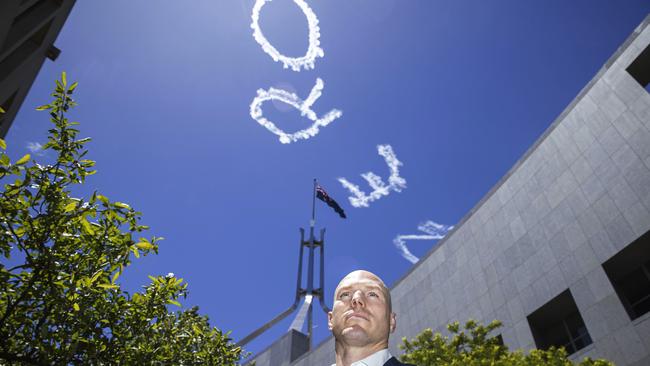
The extraordinary reversal for sustainable funds followed their poor performance last year as oil and coal stocks ran higher and “clean” tech stocks were sold off strongly. Some sustainable super funds saw returns which were twice as bad as the 4.8 per cent drop for average balanced funds in 2022.
Combined with a widespread debate over greenwashing in the sector (where sustainable claims are exaggerated), investors have cooled dramatically on the sector and overall net inflows recorded just 4 per cent growth over the three months to March 31 against the previous quarter.
Until very recently, funds linked to ESG – environmental Social and governance – issues had been exceptionally popular with investors.
However, there has been widespread criticism of soft labelling regulations in the sector and investors have been demanding higher standards of disclosure.
Separately, there has been a swing against ESG investing, especially in some US states where there has been a move to ban state assets from enacting ESG strategies; The new state laws in Iowa, North Dakota and Wyoming are based on laws which exclude non-financial factors from influencing investment decisions.
Among the funds hardest hit in the three months to March is Vanguard – the giant US mutual exchange traded fund provider. According to the Morningstar group which assessed the latest Australian returns, the outflow at Vanguard was “at odds with its sustainable peers, its previous quarters trends and the strategies witnessed in the quarter”.
In December last year Vanguard hit double trouble with environmental activists. Over the course of the month the Connecticut group exited the Net Zero Asset Managers group – a global investment industry climate initiative.
Meanwhile, in Australia the group was fined by the Australian Securities and Investments Commission for documents that “may have been liable to mislead the public”.
The giant US group, which has recently entered the local superannuation market, had outflows at both Australian and international share funds.
A Vanguard spokesman told The Australian: “Our ethically conscious range has seen strong interest since our first funds launched in 2018.
“Across the range we saw limited outflow during the January quarter reflecting a small number of larger redemptions, and some client rebalancing activity.
“This is not uncommon cashflow activity for funds and ETFs to experience, particularly over shorter time frames.”
Across the entire Australian market, overall flows into sustainable assets fell by $775m – or 78 per cent – compared with the previous quarter on an adjusted basis (to cover the merger of Australian Ethical and Christian Super).
Nonetheless, the sustainable sector stayed in positive territory with flows up around $2bn. In contrast “broad investment funds” had flows which were down by about $2bn.
Australian Ethical is the leader in the space with about 18 per cent market share, followed by Vanguard with 13 per cent, then Dimensional with 11 per cent and Betashares with 9 per cent.
Morningstar ESG analyst Erica Hall says that the sustainable sector asset flows have continued to be more resilient than the broader market.
However, the volume of new sustainable funds being introduced to the local markets also suggest a rush into ESG-themed investing by market players is clearly slowing down.
At the peak of the rush into the sector there were 36 new funds launched in 2021; in 2022 there were 23 funds launched and over the year to date just two funds.
Hall suggests that longer-term patterns indicate there was little difference between investing in mainstream balanced funds against ESG-focused funds over the past five years.




“Green” managed funds have been hit hard in the investment markets as sustainable funds saw inflows plunge 78 per cent in the first three months this year.